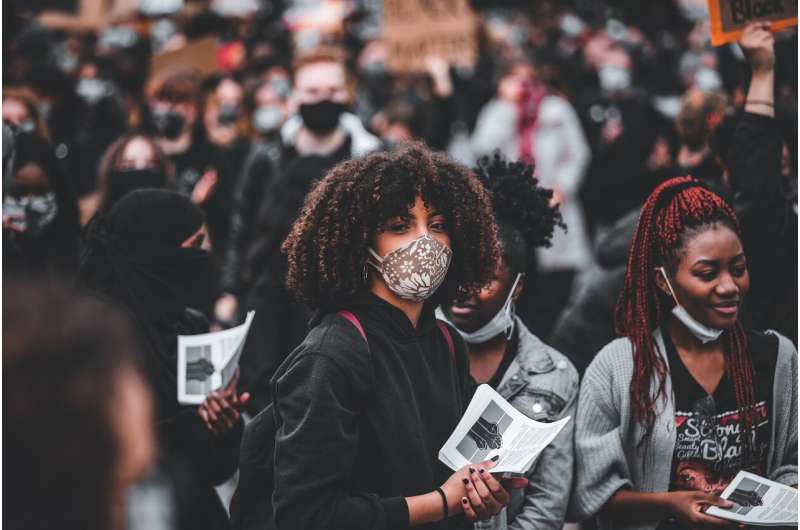Wearing face coverings protected wearers from COVID-19 infection according to large scale study

People who wore face coverings or masks outside of the home, and were more exposed to infection due to their circumstances, had 'significantly' lower rates of COVID-19 infection, according to research published in BMJ Open today, led by Oxford's Leverhulme Centre for Demographic Science.
Although it has been widely asserted that face coverings protect others, rather than the wearer, this large-scale study found a clear link between wearing a face covering outside the home and infection.
The study links individuals' and households' ability to follow non-pharmaceutical interventions (NPIs) often known as COVID behavioral interventions, using the largest and most representative dataset to date in the UK, including people from different ethnic and age groups.
Using the COVID Infection Study (CIS), study participants were asked to complete a short questionnaire, as well as taking regular COVID tests. Respondents were asked to reveal how often they worked outside the home, how easy it was to maintain social distance in their workplace, whether they took public transport and whether they had direct contact with others on a day-to-day basis.
According to the study, "wearing a face covering outside was a significant predictor of a lower chance of infection before mid-December 2020 in the UK, when a stricter second lockdown was implemented."
The study found there was a higher rate of infections among those who lacked autonomy to follow COVID behavioral measures and did not comply with wearing a face covering.
Author Professor Melinda Mills says that "lack of compliance to COVID behavioral measures has often been positioned as an attitude or choice. Yet there are large groups of people who, due to their household or employment circumstances, cannot follow measures to work from home, engage in physical distancing at the workplace or avoid public transportation. This, in turn, means that they have a higher exposure to becoming infected."
"The inability for some groups of people to follow behavioral interventions exacerbates existing health inequalities and we showed that face coverings are one measure that can mitigate this unequal exposure."
The team found that "the level of autonomy to adhere to behavioral interventions does not predict COVID- 19 infection alone, but rather the risk of infection is diminished when individuals wear face covering/masks."
The study concludes that "wearing a face covering or mask outside the home can reduce the unequal effects of exposure to COVID- 19 due to individual and employment circumstances."
Professor Mills adds that "using a very large individual and household sample and COVID swab tests, we showed that the inability for certain groups such as women in large households or those working in occupations where it is hard to maintain physical distancing were protected from infection during key periods in 2020 in the UK."
More information: Xuejie Ding et al, Factors affecting adherence to non-pharmaceutical interventions for COVID-19 infections in the first year of the pandemic in the UK, BMJ Open (2021). DOI: 10.1136/bmjopen-2021-054200




















